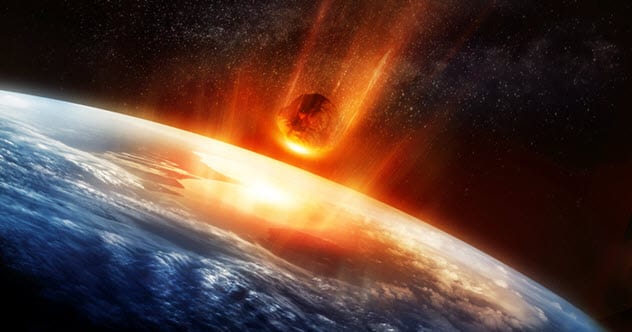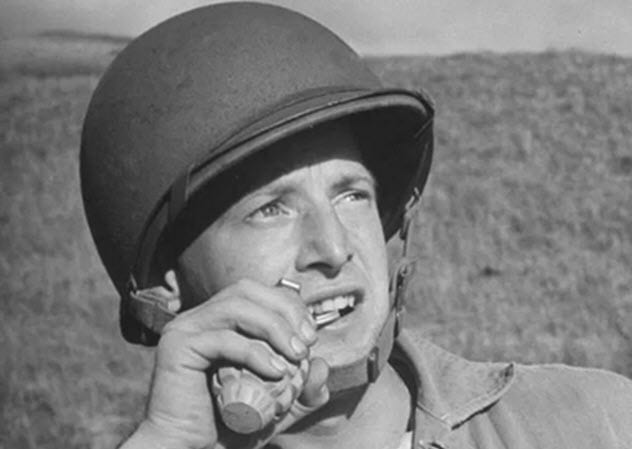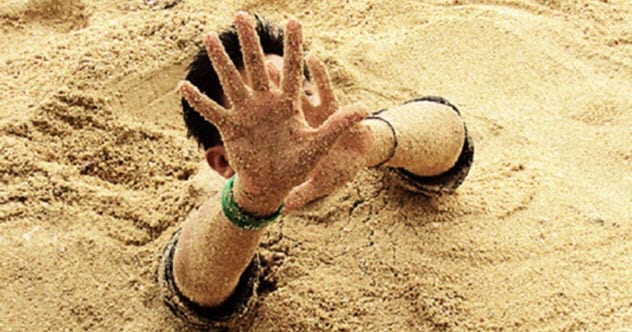It’s a problem, though, when some of these oft-repeated misconceptions in movies are so prevalent that people start believing them as fact. They don’t just affect our perception of the world but also create issues during real-time crisis situations in some extreme cases.
10 That’s Not How Chloroform Works
Chloroform is portrayed as the ultimate weapon to instantly knock someone out in almost every movie in which it’s featured. No matter how scientifically accurate the rest of the movie is, writers often fail to research this misunderstood chemical. In reality, chloroform doesn’t work like that. While it’s true that it’s incredibly good at knocking someone out—even in small doses—it doesn’t do it instantly. Even at higher doses, chloroform takes at least five minutes to be effective. A couple of drops of it on a handkerchief—like they do it in movies—is certainly not a high dose. It’s also not usually used for criminal activities. Chloroform has many worthwhile properties—like being an anesthetic—which have been used throughout the years.[1]
9 Amber Can’t Hold DNA For So Long
Even if this one is too specific to show up in many movies (as we’ve only see it in Jurassic Park), enough people believe it for us to include it here. Thanks to that movie, we think that DNA can survive over millennia if it’s preserved in amber (or any other type of rock) and can be used to revive prehistoric animals if needed. While DNA can survive in certain mediums, it certainly can’t stay long enough for us to still have dinosaur DNA. Sure, we can probably hope to obtain, say, mammoth DNA trapped in Siberian ice. But that’s only because the mammoth existed a lot more recently than dinosaurs. It’s so widely believed that a team of researchers had to conduct a study to debunk it. However, thanks to Jurassic Park, the myth refuses to die out.[2]
8 Cops Don’t Have To Read You Rights While Handcuffing You
Whenever an arrest is made in TV shows or movies—at least the ones based in the US—the cops always make it a point to read a Miranda warning (“you have the right to remain silent,” etc.) to the unlucky suspect. For the people who’ve never been arrested in real life, this may seem like the way they do it. But that’s not the case. Although it’s true that cops have to read you your rights at some point after you’re arrested, it’s almost never done at the time they handcuff you. Your Miranda rights are usually read to you after they’ve taken you into custody and are preparing for the interrogation—or at some other point during the arrest.[3] Just see any real video of a cop making an arrest and you’ll know what we’re talking about.
7 Meteors Are Actually Freezing Cold
Movies about meteors crashing into Earth and causing an apocalypse are rarer now than the time preceding the 2012 end-time scare. Still, this one shows up in many films that have been made on the subject, with the worst culprit being Deep Impact. Although we think that all meteors that make it to Earth’s surface are seething hot and burning, most aren’t big enough to cause a global problem. If you know anything about space, then you realize that meteors are actually freezing cold in nature. The burning trail we see in the sky surrounding the meteor is the air catching fire around it. The meteor itself stays as cold as it was before entering the atmosphere.[4]
6 No Gunshot Can Knock You Off Your Feet
We’d probably let this one slide a bit as it does look quite dramatic and awesome on-screen. However, it propagates a faulty idea of how guns are supposed to work, which is never a good thing. Gunshots in movies are often enough to knock someone back, which sounds intuitive as bullets have a large amount of momentum. In reality, if a gun were able to do that, it would exert an equal amount of force on the shooter. That’s true for all guns regardless of their type and caliber. It’s just a fundamental rule of physics. If movies were to accurately portray that, they would end up with unintentionally hilarious scenes of shooters getting knocked back along with their victims.[5]
5 You Don’t Always Get One Phone Call On Arrest
We’re not sure if scriptwriters aren’t arrested that often or if they don’t use Google a lot, but many movies and TV shows portray suspects getting one phone call when they’re arrested. In reality, there’s no rule about how many phone calls you can make while in police custody. You may not be able to call anyone if the crime you’ve committed is serious enough and the interrogators believe that calling someone may jeopardize their investigation. Conversely, you can also get more than one call depending on the severity and location of the crime and arrest. No matter how many calls you get, though, it’s almost never one.[6]
4 Dual-Wielding Guns (Or Any Weapons) Are Impractical
Action movies of the 1980s and ’90s would look very different without badass heroes dual-wielding a wide variety of guns in their various fights. It stands to reason that two is always better than one, and you’d think that two guns would have more bullets and could be used to inflict more damage. As it turns out, dual-wielding anything—let alone guns—is hugely impractical and actually reduces your overall chances of landing a hit. If you ever find yourself in a situation where you have two guns lying around and a diabolical villain to defeat, you’re better off just picking one weapon.[7] The effective number of bullets and accuracy is higher with one gun. This gives you more of a chance to kill the bad guy before he murders you.
3 You Can’t Pull A Grenade Pin With Your Teeth
There are quite a few myths surrounding grenades in movies. But we’ll focus on how films show that pulling the pin off a grenade with your teeth before throwing it is somehow a thing people can do. In real life, that’s not how these weapons work. As grenades are full of shrapnel that can incapacitate—and even kill if close enough—the targets, their pins are specifically designed not to come off easily. It also depends on the grenade. While some types of grenade pins are spread out wide, others require quite a bit of twisting and turning. In almost all cases, pulling the pins with your teeth will end up with you not having teeth anymore.[8]
2 Quicksand Isn’t An Automatic Death Sentence
Accidentally falling into quicksand without any help around is considered a sure way to die if movies are to be believed. This is one of those myths that can cause problems in real life as people stuck in quicksand often panic and end up making things worse for themselves than they would if they knew how quicksand works.[9] In essence, quicksand is just mud mixed with water (and clay in some cases). It can get a bit gooey and spoil your clothes if you fall into it. That’s mostly the only risk it poses, though, as most types of quicksand allow you to float free once you’re about waist-deep in it. You don’t have to believe us, either, as it was proven in a study published in Nature.
1 Sharks’ Sense Of Smell Has Been Massively Exaggerated
We’re not sure who’s the real culprit behind this one—movies or viral science pages on Facebook. However, Jaws did a lot to cement this myth in popular imagination before it had a chance to be debunked. We’ve all heard of some version of “sharks can smell a drop of blood from miles away,” which has probably contributed to many people’s acute phobia of them. Now we’re not saying that sharks have a bad sense of smell. It’s actually quite keen. But it’s just not as good as we thought it was. All the studies conducted on the subject suggest that sharks can, at most, smell a drop of blood across an Olympic-sized swimming pool.[10] It also depends on what they’re smelling as their range drops off considerably if it’s a denser liquid. Nevertheless, it’s safe to say that sharks cannot smell anything across miles of ocean. You can check out Himanshu’s stuff at Cracked and Screen Rant, or get in touch with him for writing gigs. Read More: Twitter Facebook Instagram Email
























